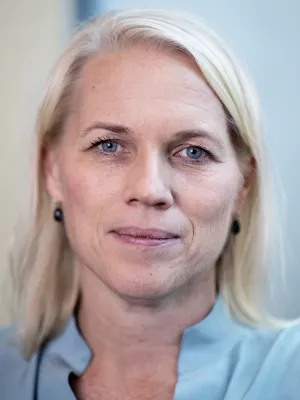
Sophia Zackrisson
Manager

VAI-B : A multicenter platform for the external validation of artificial intelligence algorithms in breast imaging
Author
Summary, in English
Purpose: Multiple vendors are currently offering artificial intelligence (AI) computer-aided systems for triage detection, diagnosis, and risk prediction of breast cancer based on screening mammography. There is an imminent need to establish validation platforms that enable fair and transparent testing of these systems against external data. Approach: We developed validation of artificial intelligence for breast imaging (VAI-B), a platform for independent validation of AI algorithms in breast imaging. The platform is a hybrid solution, with one part implemented in the cloud and another in an on-premises environment at Karolinska Institute. Cloud services provide the flexibility of scaling the computing power during inference time, while secure on-premises clinical data storage preserves their privacy. A MongoDB database and a python package were developed to store and manage the data onpremises. VAI-B requires four data components: radiological images, AI inferences, radiologist assessments, and cancer outcomes. Results: To pilot test VAI-B, we defined a case-control population based on 8080 patients diagnosed with breast cancer and 36,339 healthy women based on the Swedish national quality registry for breast cancer. Images and radiological assessments from more than 100,000 mammography examinations were extracted from hospitals in three regions of Sweden. The images were processed by AI systems from three vendors in a virtual private cloud to produce abnormality scores related to signs of cancer in the images. A total of 105,706 examinations have been processed and stored in the database. Conclusions: We have created a platform that will allow downstream evaluation of AI systems for breast cancer detection, which enables faster development cycles for participating vendors and safer AI adoption for participating hospitals. The platform was designed to be scalable and ready to be expanded should a new vendor want to evaluate their system or should a new hospital wish to obtain an evaluation of different AI systems on their images.
Department/s
- Radiology Diagnostics, Malmö
- LUCC: Lund University Cancer Centre
- EpiHealth: Epidemiology for Health
- LTH Profile Area: Photon Science and Technology
- LU Profile Area: Light and Materials
Publishing year
2023-11
Language
English
Publication/Series
Journal of Medical Imaging
Volume
10
Issue
6
Document type
Journal article
Publisher
SPIE
Topic
- Radiology, Nuclear Medicine and Medical Imaging
Keywords
- breast cancer
- data management
- machine learning
- mammography
- validation
Status
Published
Research group
- Radiology Diagnostics, Malmö
ISBN/ISSN/Other
- ISSN: 2329-4302

